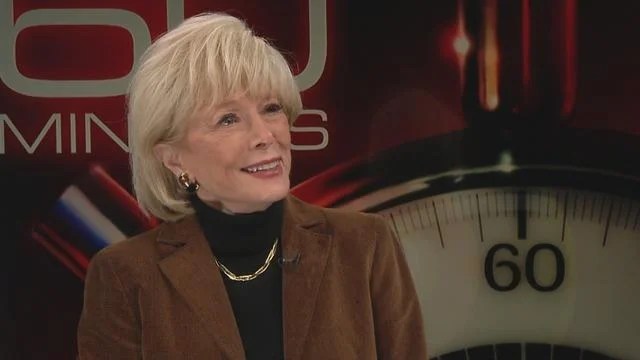In the realm of investigative journalism, few programs have made as significant an impact as 60 Minutes. Renowned for its hard-hitting reports and in-depth interviews, this television news program has been a staple of Sunday nights for decades. The journalists who contribute to this iconic show are not just reporters; they are storytellers who delve into the heart of complex issues, bringing them to the forefront of public consciousness. 60 Minutes reporters have a unique ability to uncover truths, shine a light on injustices, and give voice to the voiceless. Their compelling narratives and investigative prowess have earned them numerous accolades and a loyal viewership.
From political scandals to social justice issues, the breadth of topics covered by 60 Minutes reporters is vast. Each episode presents a carefully curated selection of stories that not only inform but also provoke thought and discussion among viewers. As the landscape of journalism continues to evolve, the commitment of these reporters to uphold the standards of integrity and transparency remains steadfast.
The legacy of 60 Minutes is a testament to the power of journalism in shaping public opinion and policy. The reporters who work on this program exemplify the ideals of tenacity, curiosity, and ethical reporting. As we explore the world of 60 Minutes reporters, we will examine their backgrounds, notable contributions, and the impact they have made in the field of journalism.
Who Are the Notable 60 Minutes Reporters?
The roster of 60 Minutes reporters includes some of the most respected names in journalism. Each reporter brings their unique perspective and expertise to the show, contributing to its rich tapestry of storytelling.
- Lesley Stahl
- Scott Pelley
- Anderson Cooper
- Bill Whitaker
What Makes 60 Minutes Reporters Stand Out?
One of the defining characteristics of 60 Minutes reporters is their dedication to thorough research and fact-checking. This commitment to accuracy not only enhances the credibility of the stories presented but also fosters trust with the audience.
Another factor that sets them apart is their ability to connect with interview subjects. The interviews conducted by 60 Minutes reporters often reveal deep insights and emotional truths, making the stories relatable and impactful.
How Do 60 Minutes Reporters Prepare for Their Stories?
The preparation process for a 60 Minutes segment is extensive. Reporters often spend weeks, if not months, researching their topics, conducting interviews, and gathering evidence to support their narratives. This meticulous approach ensures that the stories are not only compelling but also grounded in reality.
What Are Some Iconic Stories Covered by 60 Minutes Reporters?
Over the years, 60 Minutes has tackled numerous high-profile stories that have resonated with viewers. Some of the most memorable segments include:
- The Watergate scandal
- The Enron scandal
- Interviews with world leaders
- Investigations into corporate malfeasance
How Has 60 Minutes Evolved Over Time?
Since its inception in 1968, 60 Minutes has undergone various changes, adapting to the evolving media landscape while maintaining its core mission of investigative journalism. The introduction of digital platforms has allowed the show to reach a wider audience, making its content accessible to viewers beyond traditional television.
What Impact Have 60 Minutes Reporters Had on Society?
The impact of 60 Minutes reporters extends beyond the screen. Their investigations have often led to significant changes in laws and policies, shining a spotlight on issues that require urgent attention. By bringing these stories to light, they empower viewers to engage with societal challenges and advocate for change.
What Are the Personal Details of Iconic 60 Minutes Reporters?
Understanding the backgrounds of these influential reporters can provide additional context to their work. Below is a table highlighting some personal details and bio data of prominent 60 Minutes reporters:
| Name | Position | Years Active | Notable Achievements |
|---|---|---|---|
| Lesley Stahl | Correspondent | 1972 - Present | Emmy Award Winner, Author |
| Scott Pelley | Correspondent | 2004 - Present | Edward R. Murrow Award, Peabody Award |
| Anderson Cooper | Correspondent | 2006 - Present | Emmy Award Winner, Author |
| Bill Whitaker | Correspondent | 2014 - Present | Multiple Emmy Awards |
How Do Viewers Connect with 60 Minutes Reporters?
The connection between viewers and 60 Minutes reporters is cultivated through authenticity and relatability. Viewers appreciate the candidness and integrity displayed by the reporters, fostering a sense of trust and loyalty. The emotional resonance of their stories often encourages viewers to share their experiences and engage in discussions around the issues presented.
What Is the Future of 60 Minutes Reporters?
As the media landscape continues to evolve, the future of 60 Minutes reporters is likely to be shaped by technological advancements and changing viewer preferences. However, the core principles of investigative journalism—truth, integrity, and accountability—will remain timeless. The commitment of 60 Minutes reporters to uphold these values will ensure that the program continues to be a driving force in journalism for years to come.
You Might Also Like
Emma Cannon: A Multifaceted Talent In The World Of EntertainmentExploring Mark Levin's Health Journey: Insights And Inspirations
Unveiling The Multi-Talented Melissa O'Neil: A Journey Through Her Life And Career
Discovering The Life And Culinary Journey Of Ree Drummond
Unveiling The Charismatic Life Of Prince Mateen
Article Recommendations
- Blake Shelton Politics 2024
- Janiceejanicee
- Laurie Holmond
- Girlylana Onlyfans Leaked Nudes
- Melissa Mcknight
- Normal Resp Rate
- Is Luke Mably Married
- Jon Aitchison
- Gabrielle Dennis Relationship
- Tim Miller Husband


